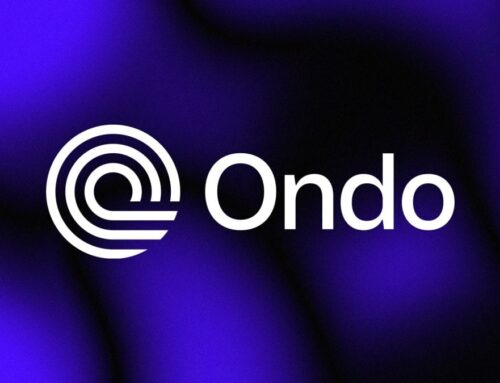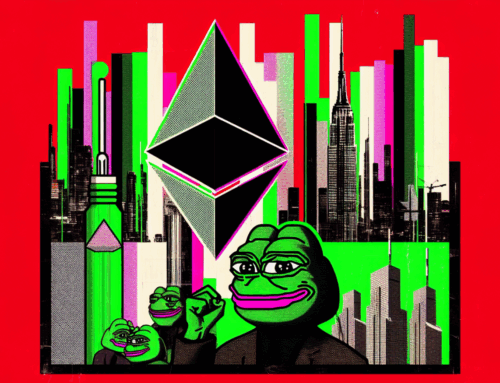Meta Swears This Time Is Different
July 18, 2025
Mark Zuckerberg was supposed to win the AI race. Eons before ChatGPT and AlphaGo, when OpenAI did not exist and Google had not yet purchased DeepMind, there was FAIR: Facebook AI Research. In 2013, Facebook tapped one of the “godfathers” of AI, the legendary computer scientist Yann LeCun, to lead its new division. That year, Zuckerberg personally traveled to one of the world’s most prestigious AI conferences to announce FAIR and recruit top scientists to the lab.
FAIR has since made a number of significant contributions to AI research, including in the field of computer vision. Although the division was not focused on advancing Facebook’s social-networking products per se, the premise seemed to be that new AI tools could eventually support the company’s core businesses, perhaps by improving content moderation or image captioning. But for years, Facebook didn’t develop AI as a stand-alone, consumer-facing product. Now, in the era of ChatGPT, the company lags behind.
Facebook, now called Meta, trails not just OpenAI and Google but also newer firms such as Anthropic, xAI, and DeepSeek—all of which have launched advanced generative-AI models and chatbots over the past few years. In response, Zuckerberg’s company quickly launched its own flagship model, Llama, but it has struggled relative to its competitors. In April, Meta proudly rolled out a Llama 4 model that Zuckerberg called a “beast”—but after an experimental version of the model scored second in the world on a widely used benchmarking test, the version released to the public ranked only 32nd. In the past year, every other top AI lab has released new “reasoning” models that, thanks to a new training paradigm, are generally much better than previous chatbots at advanced math and coding problems; Meta has yet to deliver its own.
So, a dozen years after building FAIR, Meta is effectively starting over. Last month, Zuckerberg went on a new recruiting spree. He hired Alexandr Wang, the 28-year-old ex-head of the start-up Scale, as chief AI officer to lead yet another division—dubbed Meta Superintelligence Labs, or MSL—and has reportedly been personally asking top AI researchers to join. The goal of this redo, Zuckerberg wrote in an internal memo to employees, is “to build towards our vision: personal superintelligence for everyone.” Meta is reportedly attempting to lure top researchers by offering upwards of $100 million in compensation. (The company has contested this reporting; for comparison, LeBron James was paid less than $50 million last year.) More than a dozen researchers from rival companies, mainly OpenAI, have joined Meta’s new AI lab so far. Zuckerberg also announced that Meta plans to spend hundreds of billions of dollars to build new data centers to support its pursuit of superintelligence. FAIR will still exist but within the new superintelligence team, meaning Meta has both a chief AI “scientist” (LeCun) and a chief AI “officer” (Wang). At the same time, MSL is cloistered off from the rest of Meta in an office space near Zuckerberg himself, according to The New York Times.
When I reached out to Meta to ask about its “superintelligence” overhaul, a spokesperson pointed me to Meta’s most recent earnings call, in which Zuckerberg described “how AI is transforming everything we do” and said that he is “focused on building full general intelligence.” I also asked about comments made by an outgoing AI researcher at Meta: “You’ll be hard pressed to find someone that really believes in our AI mission,” the researcher wrote in an internal memo, reported in The Information, adding that “to most, it’s not even clear what our mission is.” The spokesperson told me, in response to the memo, “We’re excited about our recent changes, new hires in leadership and research, and continued work to create an ideal environment for revolutionary research.”
Meta’s superintelligence group may well succeed. Small, well-funded teams have done so before: After a group of former OpenAI researchers peeled off to form Anthropic a few years ago, they quickly emerged as a top AI lab. Elon Musk’s xAI was even later to the race, but its Grok chatbot is now one of the most technically impressive AI products around (egregious racism and anti-Semitism notwithstanding). And regardless of how far Meta has fallen behind in the AI race, the company has proved its ability to endure: Meta’s stock reached an all-time high earlier this year, and it made more than $17 billion in profit from January through the end of March. Billions of people around the world use its social apps.
The company’s approach is also different from that of its rivals, which frequently describe generative AI in ideological, quasi-religious terms. Executives at OpenAI, Anthropic, and Google DeepMind are all prone to writing long blog posts or giving long interviews about the future they hope to usher in, and they harbor long-standing philosophical disagreements with one another. Zuckerberg, by comparison, does not appear interested in using AI to transform the world. In his most recent earnings call, he focused on five areas AI is influencing at Meta: advertising, social-media content, online commerce, the Meta AI assistant, and devices, notably smart glasses. The grandest future he described to investors was trapped in today’s digital services and conventions: “We’re all going to have an AI that we talk to throughout the day—while we’re browsing content on our phones, and eventually as we’re going through our days with glasses—and I think this will be one of the most important and valuable services that has ever been created.” Zuckerberg also said that AI-based updates to content recommendations on Facebook, Instagram, and Threads have increased the amount of time that users spend on each platform. In this framework, superintelligence may just be a way to keep people hooked on Meta’s legacy social-media apps and devices.
Initially, it seemed that Meta would take a different path. When the company first entered the generative-AI race, a few months after the launch of ChatGPT, the firm bet big on “open source” AI software, making its Llama model free for nearly anyone to access, modify, and use. Meta touted this strategy as a way to turn its AI models into an industry standard that would enable widespread innovation and eventually improve Meta’s AI offerings. Because open-source software is popular among developers, Zuckerberg claimed, this strategy would help attract top AI talent.
Whatever industry standards Zuckerberg was hoping to set, none have come to fruition. In January, the Chinese company DeepSeek released an AI model that was more capable than Llama despite having been developed with far fewer resources. Catching up to OpenAI may now require Meta to leave behind the company’s original, bold, and legitimately distinguishing bet on “open” AI. According to the Times, Meta has internally discussed the possibility of stopping work on its most powerful open-source model (“Behemoth”) in favor of a closed model akin to those from OpenAI, Anthropic, and Google. In his memo to employees, Zuckerberg said that Meta will continue developing Llama while also exploring “research on our next generation of models to get to the frontier in the next year or so.” The Meta spokesperson pointed me to a 2024 interview in which Zuckerberg explicitly said that although the firm is generally “pro open source,” he is not committed to releasing all future Meta models in this way.
While Zuckerberg figures out the path forward, he will also have to contend with the basic reality that generative AI may alienate some of his users. The company rolled back an early experiment with AI characters after human users found that the bots could easily go off the rails (one such bot, a self-proclaimed “Black queer momma of 2” that talked about cooking fried chicken and celebrating Kwanzaa, tied itself in knots when a Washington Post columnist asked about its programming); the firm’s stand-alone AI app released earlier this year also led many users to unwittingly share ostensibly private conversations to the entire platform. AI-generated media has overwhelmed Facebook and Instagram, turning these platforms into oceans of low-quality, meaningless content known as “AI slop.”
Still, with an estimated 3.4 billion daily users across its platforms, it may be impossible for Meta to fail. Zuckerberg might appear to be burning hundreds of millions of dollars on salaries and much more than that on new hardware, but it’s all part of a playbook that has worked before. When Instagram and WhatsApp emerged as potential rivals, he bought them. When TikTok became dominant, Meta added a short-form-video feed to Instagram; when Elon Musk turned Twitter into a white-supremacist hub, Meta launched Threads as an alternative. Quality and innovation have not been the firm’s central proposition for many, many years. Before the AI industry obsessed over scaling up its chatbots, scale was Meta’s greatest and perhaps only strength: It dominated the market by spending anything to, well, dominate the market.
Search
RECENT PRESS RELEASES
Related Post



